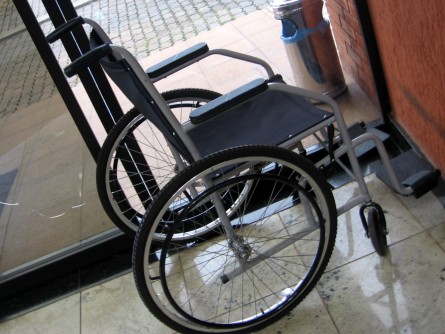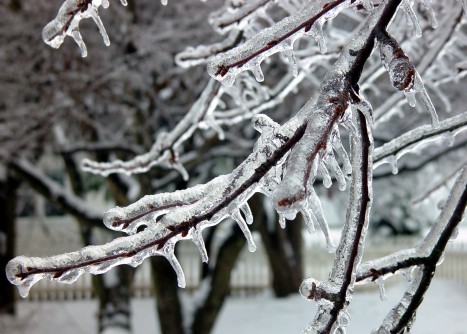Here's the beginning:
New Jersey native Delly Beekman has one message for female volunteers: This isn't your mother's charity anymore.
The newly elected board president is trying to turn the century-old Association of Junior Leagues International from a pearls-and-white-glove social organization into a powerful women's movement.
Oh good. Just what we needed: Another powerful women's movement.
Sorry for the sarcasm, it's just that sometimes it seems to me that whenever nonprofits are at a loss about how to make themselves more popular or more financially sustainable, they immediately decide to become more political.
Now, It does seem that the Junior League has been suffering from some membership problems lately, losing a fifth of its members in the last decade, according to the Journal. Their first answer, which is to offer more opportunities to women who work more and have less time to devote to civic service seems reasonable.
But the League's other plan, according to the Journal, is
to transition the Leagues from project-based organizations, where members participate in singular volunteer activities, to issue-based groups, rallying together on issues such as sex-trafficking of women, childhood obesity and education. A number of local leagues have formed political action groups to lobby local and national leaders on these issues.
Ms. Beekman has apparently determined that this is the way to go forward based in part on the advice of her 24-year-old daughter. The conversation probably went something like this: "Mom, get with the times. If you want all those girls who voted for Obama to come to the Junior League, you have to think big. Think political issues. All of those little clothing drives aren't going to inspire my generation."
Who knows? She may be right. But I hope not. It's not just nostalgia for "my mother's charity" that leads me to that conclusion. It's that I worry there are so few spaces where we can meet our fellow citizens and not get plunged into politics. It's not that I think most people disagree about sex-trafficking, presumably. But I'm guessing there are some serious political differences on what should be done about childhood obesity and fixing education. More important, I just figure there are probably enough people out there doing political lobbying. Maybe a few of us could just stick with the clothing drives.
4 thoughts on “No escaping politics as Junior League changes focus”
Comments are closed.






The Junior Leagues of California State Public Affairs Committee (SPAC) has represented the interests of its 16 member Leagues for almost 40 years. Advocacy within the Junior League is not a new thing. We are a non-partisan education and advocacy organization. The bills that we choose to sponsor and support directly align to the projects that our member Leagues are working on and are meant to enhance the impact of these projects.
As Junior League founder Mary Harriman said in 1912, “Our League was organized as a means of expressing the feeling of social responsibility for the conditions which surround us. We have the responsibility and the opportunity to conscientiously act to affect our environment.” These words still accurately reflect the intent of the 35 State Public Affairs Committees and the 283 member leagues of the Association of Junior Leagues International.
It would be a shame to miss the opportunity that SPAC has to represent the interests of over 12,000 members in California and to help advocate for solutions to the needs that our projects are trying to address. Legislators know that the bills we advocate for are meaningful, have impact, and have been well vetted by our delegates.
Based on the success we’ve had in California, I support Delly Beekman’s vision of advocacy throughout AJLI.
Diana Gilbert
Co-Chair, Junior Leagues of California SPAC
The points Ms. Riley makes are excellent points. As a relatively new member in Junior League, I was disappointed to see that some Junior Leagues have political action committees. Is not the very meaning of philanthropy and non-profit work to take advantage of the private sector and accomplish work OUTSIDE of the government?
The younger generations have been taught that the only significant way to be, well, significant is to cause change through government. At a brainstorming session I participated in, we were brainstorming solutions to a problem found in a certain segment of society. Very few of the participants could come up with any “solution” other than working with various government entities to effectuate change, and essentially becoming a partner with the government. It was truly disappointing.
Gosh I’ve been involved in politics in the past. If I want to be involved in politics and “issues”, I’ll join a group dedicated to that. There are so many of them.
First it’s the easy “issues” around which everyone can rally: childhood obesity and sex-trafficking. That’s just to get used to issue advocacy. Before long it’ll be the same tired old issues: abortion, gay rights and immigration.
I long for an organization that is truly private and does not look to the government to solve problems.
As the current President of the Junior League of San Jose, California, I loved Delly’s commentary and truly believe that for Leagues to continue to be viable, we need to address the next generation of women. Throughout my path to the presidency, I have taken many classes and though I may not fully agree with each and every piece of AJLI’s Strategic Roadmap, it is, nonetheless, critical to review our structure and what we offer as an organization so that we can continue to be the volunteer organization of choice for women throughout 292 Leagues and four countries.
Thank you, Laurie, for your response to Naomi.
We’re thrilled that Naomi Schaefer Riley is considering becoming a member of her local Junior League. I can assure you that Naomi is exactly the kind of member we’re looking for: smart, committed and able to make up her own mind.
I do want to address a few apparent misperceptions in Naomi’s reading of The Wall Street Journal article.
First, the facts.
The Association of Junior Leagues International, Inc., the umbrella organization for 292 independent Leagues in four countries, is involved in a multi-year strategic review of how it attracts and retains members, and how those members work together as civic leaders in their communities, both as League members and as individuals, in addressing some of the most pressing and under-served needs their communities face.
The Journal article, perhaps shortened by editors before publication (an unavoidable reality in today’s publishing climate with which Naomi is surely familiar on account of her tenure at the Journal and elsewhere), focused on a few issues and, in so doing, may have prompted Naomi’s misperceptions.
First, we are already known far and wide as a “powerful women’s movement” and our history of providing service to communities and incomparable leadership opportunities to women over the last 109 years has given us legitimate claim to this moniker. What we are now doing, as any century-old organization would be wise to do, is reviewing our role in the new landscape of modern society and scrutinizing our value proposition to modern women in order to make ourselves as relevant and impactful as possible, i.e., demanding careers, work and family balance, competing volunteer organizations are some of the realities of today that require some adjustment and re-tooling if we are to be as effective as we can be.
Second, all of the things that Naomi finds attractive about traditional League initiatives—helping local immigrants, teaching adults how to read, aiding kids through programs like clothing drives—remain, and will continue to remain, important initiatives for Leagues and their members because we believe that we are inextricably linked to the communities in which we reside, and because improving the quality of life in our communities is in our DNA as an organization, and has been ever since Mary Harriman began working to improve the squalid living conditions of new immigrants in 1901.
Third, The Junior League, as a national organization, is politically non-partisan and as such does not and will not become involved in national advocacy efforts. We do not lobby. We do not advocate for politically charged initiatives. Leagues in individual states like New Jersey, George and California do have state public affairs committees, or SPACs, but these are a) focused on their own states, b) supporting existing League initiatives in those states and c) non-partisan in nature (as is The Junior League Movement as a whole), which allows them to convene legislators on both sides of an issue.
Fourth, the story Delly Beekman shared about seeking advice from her 24-year-old daughter was merely intended to serve as an illustration of one of The Junior League’s most pressing goals: to engage the new generation of women. Our research shows that we must do things differently.
What we are trying to do is recruit, train and motivate women to be the most powerful civic leaders they can possibly be in their communities.
So, Naomi, please give us another look—we’d love to have you!